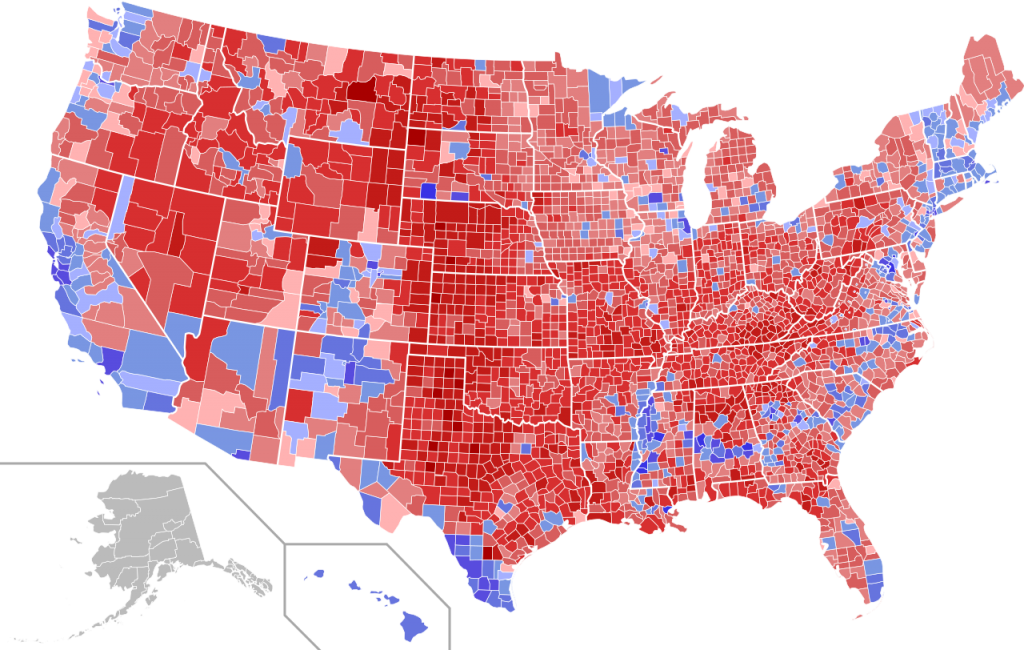Red vs. blue: does education influence your political beliefs?
Looking at different sets of data, one can observe a lot of different patterns in varying regions of the country. For example, in more urban counties, there is a higher amount of gun violence than in rural ones. In coastal counties, more people own boats than in landlocked states. And more counties that vote democratic are typically ones where more educated people reside.
The problem with this emerges when people start using these correlations as arguments to fortify their political opinions. Something I’ve seen circulating is the notion that democrats are more intelligent because the maps of educated areas are similar to the maps of democratic voting counties. There are a dozen reasons that cause these trends to correspond, not that democrats are simply smarter than republicans.
Democratic counties probably also have a higher concentration of giraffes than republican ones, as well as things like parks, museums, police officers, and military bases. Those things do not imply that democrats like animals more or they value law enforcement more, it’s just a difference in demographics.
With overall larger populations in urban areas, it becomes easier to skew these statistics. Of course there are more educated people in these areas, where there are just more people in general. A lot of claims could follow this, saying things like the fact that there are more doctors in these regions, so democrats are doing more about COVID-19, for example. It’s easy to fabricate an argument based on data that yes, show a correlation. But there are numerous other important analytical data measures that will reveal more.
Taking these things at face value can lead to trouble. Being aware of these misleading, and often harmful, ways of data being presented will make you a more informed citizen. It will keep you from making arguments that don’t hold much validity and end up unfairly discriminating against entire populations of people.



